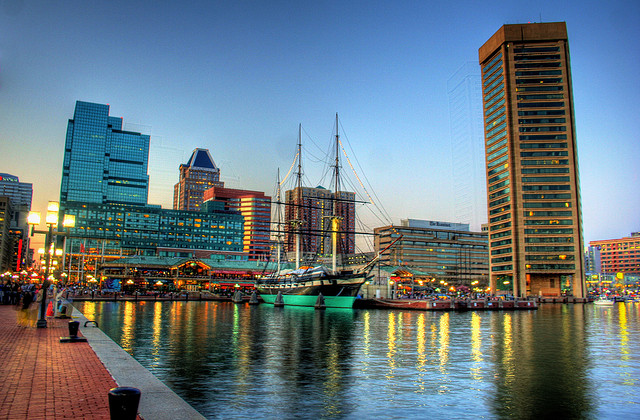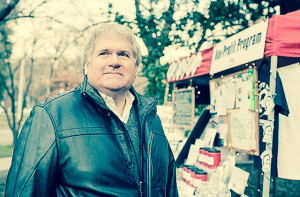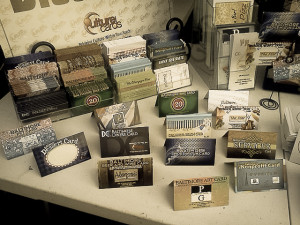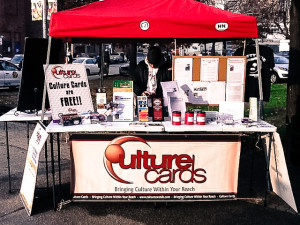
Across the water, our destination lies patiently. In plain sight, yet an eternity away, sits the object of desire. The endeavor to obtain its pleasures is formidable but enticing. The path to its doorstep marked by numerous obstacles and impediments, hindrances and problems. The daunting gauntlet immobilizes my companion, who dejectedly declares “Let’s just stay in Canton tonight.”
Our dinner plans are suddenly thwarted by the hassle of a 15-minute drive from one side of Baltimore’s harbor to the other, the comfort and familiarity of our own neighborhood provides solace, knowing that a cold drink and a delectable meal can be had at numerous local joints. And the burden of traffic lights and city parking makes a protest futile, relenting to the ease of staying put. Sure, public transportation is available, but that would require relying on someone else’s schedule and riding with complete strangers; two things that modern Americans shouldn’t even have to contemplate. As the old adage goes, the only thing we have to fear is”… inconvenience. I should stop taking those inspirational quote posters that stream through my Facebook timeline at face value.
Joviality aside, the existence of neighborhood “islands” in Baltimore is a real and interesting aspect of the city as many residents emphatically state an allegiance to proximity. Nothing against personal preferences, but neighborhood commitment based on travel hassles begs the question: why? Why are people unwilling to spend 15 minutes in their personal vehicles or, God forbid, aboard a bus, to venture into the numerous neighborhoods of the city?
 David Shapiro thinks he has some answers, and possibly some solutions. The owner of Culture Cards LLC is a long time Baltimore native and has never empathized with his fellow city dwellers’ unwillingness to venture into foreign streets of their own city. From his viewpoint, there is a frustrating disconnect in the way Baltimore residents view their town, which becomes even more intriguing after considering other Eastern seaboard cities have the opposite view. Indeed, the citizens of New York City, Washington D.C., Philadelphia, and Boston seem to embrace the diversity of neighborhoods, or at least treat them as cultural enclaves worth exploring. So, why is Baltimore different in this respect? The answer certainly contains multiple layers of complexity but it may come down to one singular problem: unawareness.
David Shapiro thinks he has some answers, and possibly some solutions. The owner of Culture Cards LLC is a long time Baltimore native and has never empathized with his fellow city dwellers’ unwillingness to venture into foreign streets of their own city. From his viewpoint, there is a frustrating disconnect in the way Baltimore residents view their town, which becomes even more intriguing after considering other Eastern seaboard cities have the opposite view. Indeed, the citizens of New York City, Washington D.C., Philadelphia, and Boston seem to embrace the diversity of neighborhoods, or at least treat them as cultural enclaves worth exploring. So, why is Baltimore different in this respect? The answer certainly contains multiple layers of complexity but it may come down to one singular problem: unawareness.
David points to the singular focus many people have when they plan forays into different parts of Baltimore. The intimidating trip described above was focused on one objective — dinner. There was no thought given to the other attractive features of the neighborhood such as art, history, or entertainment. It was simply going to be drive, get out, eat, get back in the car, and go home. David believes that the mindset stems not out of disinterest or laziness, but rather that people simply do not know those other lures exist. And he’s out to change that fact.
 Culture Cards are simple, business-sized cards which feature locally-owned businesses and attractions around Baltimore, organized by genre or location. For example, there is the Baltimore Art Card, the Baltimore Beer and Wine Card, The Fells Point Neighborhood Card, and the Baltimore Kids Card, among a plethora of others. The idea and purpose are simple: find a way to connect Baltimoreans with their own city and support their neighbors in the process to strengthen the city as a whole. Within that simple purpose are a multitude of ancillary benefits such as economic empowerment for local businesses, community development through that success, enhanced educational opportunities for the people using those cards, improved health and fitness from ditching the car in favor of foot power, and the general uptick in morale from the discovery of civic pride. Oh, and of course the various discounts many companies offer with presentation of the card.
Culture Cards are simple, business-sized cards which feature locally-owned businesses and attractions around Baltimore, organized by genre or location. For example, there is the Baltimore Art Card, the Baltimore Beer and Wine Card, The Fells Point Neighborhood Card, and the Baltimore Kids Card, among a plethora of others. The idea and purpose are simple: find a way to connect Baltimoreans with their own city and support their neighbors in the process to strengthen the city as a whole. Within that simple purpose are a multitude of ancillary benefits such as economic empowerment for local businesses, community development through that success, enhanced educational opportunities for the people using those cards, improved health and fitness from ditching the car in favor of foot power, and the general uptick in morale from the discovery of civic pride. Oh, and of course the various discounts many companies offer with presentation of the card.
Yet despite the cards’ immense potential, the challenge of creating a successful business still exists for David. He has to raise the revenue for the production of the cards themselves (as well as other business expenses) from businesses paying for their space on each card. Those establishments, not surprisingly, want to maximize advertising dollars by reaching the widest audience. So the trick becomes how to find that audience, put cards in their hands, and show prospective clients the reach Culture Cards can have. Cleverly, David has brought the community card to captive audiences, setting up weekly booths at the Baltimore Farmers’ Market under the JFX and the Druid Hill Park Farmers’ Market as well as festivals such as the Beer, Bourbon, and BBQ at the Maryland State Fairgrounds this past March and Oktoberfest at the Timonium Fair Grounds this upcoming October. Through face-to-face interactions, he has not only been able to put cards in wallets, pockets, and purses but also collect thousands of e-mails for weekly newsletters, replete with coupons and discounts to local businesses. However, despite the grass roots success with consumers, it can be a hard sell for prospective clients, especially those that do not openly embrace new marketing methods. But for those that witness the interaction between David and the throngs of market-goers, the sales pitch hardly ever needs to be made. They realize that he may be on to something potentially transformative.
 The altruistic idea was borne at Artscape (the country’s largest free arts festival) in 2009 as the enthusiastic cyclist volunteered at the bike rack and fielded an abundance of questions about where to go locally for bike supplies. As he gave the advice gained over several years of being consumed in the biking community, David realized there was a need for a resource where people could not only be confident that the establishment was legit, but was also owned by one of their neighbors. He recognized that people were willing to put a little more effort into finding a reliable source for specific expertise, which small local businesses invariably offer, instead of choosing the path of least resistance to Wal-Mart. And, combined with his passion for the city, the keen sense of fulfilling those needs inspired the spark to launch Culture Cards.
The altruistic idea was borne at Artscape (the country’s largest free arts festival) in 2009 as the enthusiastic cyclist volunteered at the bike rack and fielded an abundance of questions about where to go locally for bike supplies. As he gave the advice gained over several years of being consumed in the biking community, David realized there was a need for a resource where people could not only be confident that the establishment was legit, but was also owned by one of their neighbors. He recognized that people were willing to put a little more effort into finding a reliable source for specific expertise, which small local businesses invariably offer, instead of choosing the path of least resistance to Wal-Mart. And, combined with his passion for the city, the keen sense of fulfilling those needs inspired the spark to launch Culture Cards.
“You know,” says the greying entrepreneur behind horn-rimmed glasses, “We have some of the best schools, hospitals, theaters, and art galleries in the country. Hopkins, MICA (Maryland Institute College of Art), Peabody, The Walters, The American Visionary Art Museum; you name it, Baltimore has the same type of big-time attractions as other east coast cities.”
But David laments that while many Baltimore residents frequent those institutions, they don’t realize that there are unique and interesting local things to see and do in the same neighborhood. The car-centric culture of Baltimore allows those residents to blur passed the small shops and storefronts on their way to the end destination, missing out on culturally enriching experiences. So, the determined small business owner is confident that a Culture Card in the hand is worth an eye-opening afternoon for the soul, encouraging residents to walk through neighborhood streets and experience their own city. As the old adage goes: It’s not the destination but rather the journey that is important. I suppose some Facebook posts are worthwhile reads after all.
 About Michael Cavanagh
About Michael Cavanagh
Michael Cavanagh is a freelance writer in search of memorable locales, delectable cuisine, and delicious drink. An experienced world traveler, Michael views globetrotting as an adventure like no other. He hopes to share his discoveries with other oenophiles, foodies, nomads, and travel enthusiasts. Michael has been published in The Wine Enthusiast, PalatePress, Destinations Travel Magazine, Terroirist, and has a regular column at Examiner.
Feature photo by: flickr/Kevin Labianco



